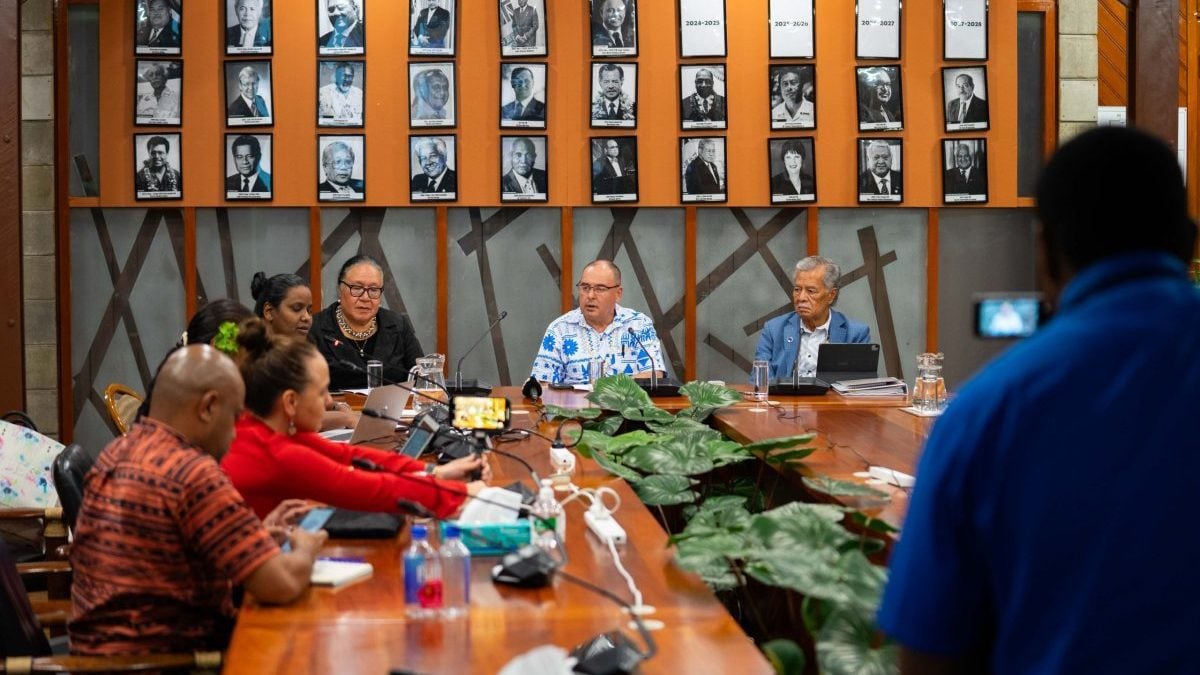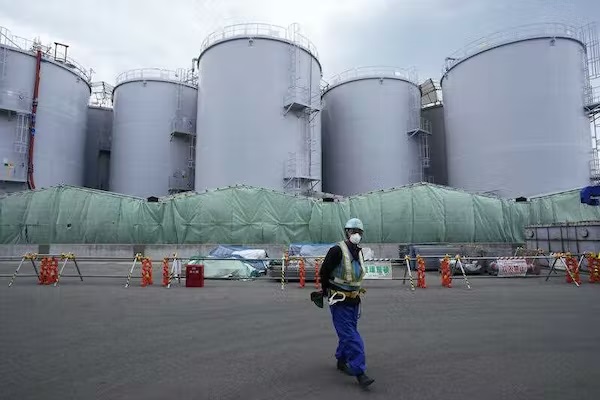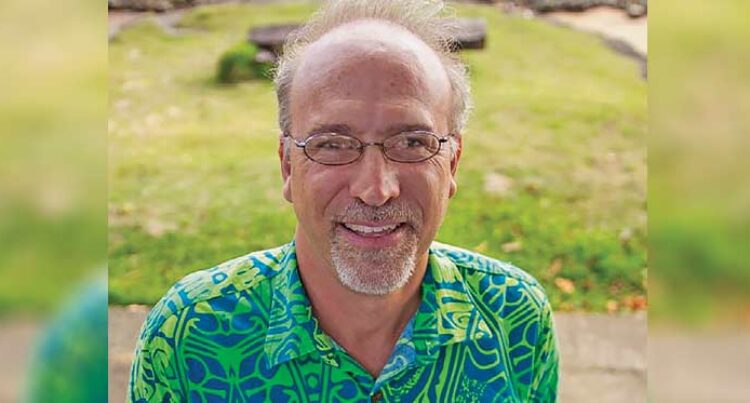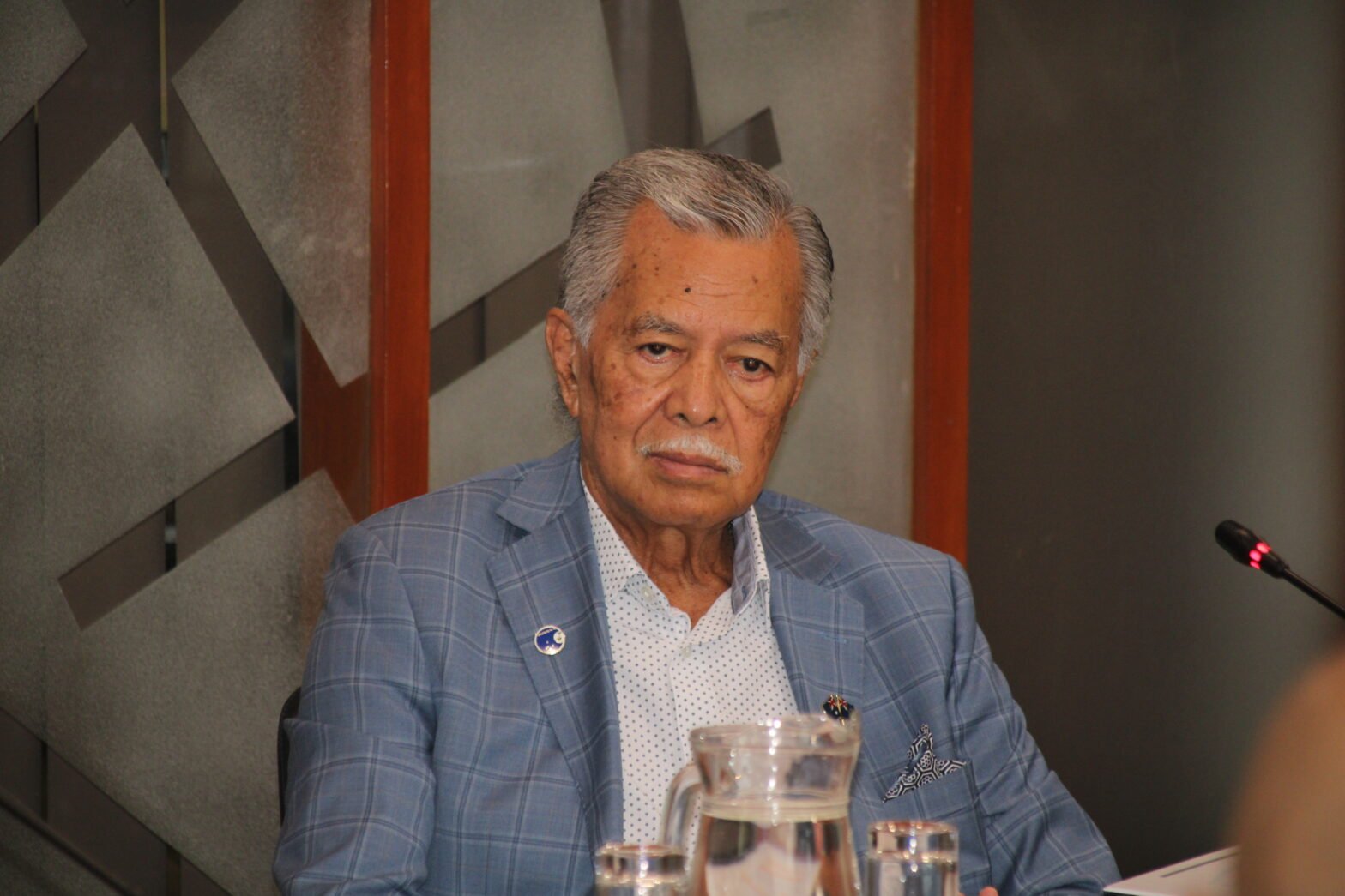The 2023 Pacific Islands Forum Foreign Ministers meeting has ended with a collective statement on Japan’s release of ALPS treated nuclear wastewater into the Pacific Ocean.
In the statement, Forum Foreign Ministers “highlighted the priorities of ensuring international consultation, international law, and independent and verifiable scientific assessments” and re-emphasised “our collective Forum position and the process we have taken over the last three years on this matter”.
‘The statement acknowledges our role as the custodians of the Pacific Ocean, and it calls for continued dialogue with both the Government of Japan and IAEA, in an accountable and transparent manner,’ Forum Chair Brown told journalists after the meeting.
At the press session, alongside Forum SG Henry Puna and Tonga’s Foreign Affairs Minister, Fekitamoeloa ‘Utoikamanu, Cook Island’s PM Mark Brown acknowledged the attendance of colleague Leaders of the Forum holding Foreign Affairs portfolios — Kiribati President Taneti Maamau, Nauru President Russ Joseph Kun, and Samoa Prime Minister Fiame Naomi Mata’afa.
Australia, New Zealand, Palau, Solomon Islands, Tonga, and Tuvalu attended at ministerial level, and all other members at the diplomatic level. The Ulu, Kelihiano Kalolo, represented PIF associate member Tokelau.
The Forum Foreign Ministerial is one of seven standing meetings of the PIF programme ahead of the Forum Leaders 52nd meeting, which will convene in the Cook Islands from 6-10, November 2023.
As Pacific Islands Forum Foreign Ministers, we refer to the decision by the Government of Japan to commence on 24 August 2023 with the release of Advanced Liquid Processing Systems (ALPS) treated water from the damaged Fukushima Daiichi Nuclear Power Plant into the Pacific Ocean and continuing over a period of approximately 30 years.
For our Blue Pacific Continent, the South Pacific Nuclear Free Zone Treaty (Rarotonga Treaty) provides the context for our engagement on nuclear issues, both in relation to non-peaceful and peaceful purposes. The Rarotonga Treaty records the region’s “determination to keep the region free of environmental pollution by radioactive wastes and other radioactive matter”.
“We recall with concern our nuclear testing legacy which has left lasting impacts in our otherwise peaceful and bountiful Blue Pacific.
It is on this basis that we recall our Leaders decision at the Ninth Pacific Islands Forum and Japan Leaders Meeting (PALM9) on 2 July 2021, where they highlighted the “priority of ensuring international consultation, international law, and independent and verifiable scientific assessments” and “committed to pursue independent guidance to interpret the scientific evidence as it becomes available”, positions of which were reaffirmed by Forum Leaders in their meetings in Fiji, in July 2022, and in February2023.
“We are further guided by our 2050 Strategy for the Blue Pacific Continent, and our ancestral role as guardians of the Pacific Ocean, which is central to our way of life and sustains our livelihood. The ocean is critical to our prosperity. It is the resource that will be passed on from generation to generation.
“We recognise the IAEA as the authority on nuclear safety and note the IAEA’s report of 02 July 2023.
Re-emphasising our collective Forum position and the process we have taken over the last three years on this matter, we, as Forum Foreign Ministers, are committed to continuing the dialogue with the Government of Japan and welcome the IAEA’s proposal for an annual dialogue mechanism with the Forum on ongoing monitoring and evaluation of the release.
“We emphasise the need to build regional scientific capacity and monitoring capabilities to assess the health and well-being of the Pacific maritime ecosystem including impacts on human health.
“We encourage and recommend that this issue be embedded in the PALM Meeting agenda, in the establishment of an annual political dialogue mechanism, and in ongoing independent monitoring by the IAEA. And we look towards further discussion by Forum Leaders at the 52nd Forum Leaders meeting in Rarotonga in November 2023”.
As well as the Fukushima issue, Foreign Ministers also discussed key climate action policies and frameworks to advance the region’s pioneering effort on climate change and sea-level rise advocacy, globally. As well as upcoming strategic opportunities for Forum Leaders at the 78th UN General Assembly in New York in September, followed by the 2nd U.S.–PIF Summit in Washington DC. The discussions on international engagement and collective strength noted increased interest in the region and the need to ensure engagement that delivers tangible outcomes.
This story was originally published at PIFS on 18 September 2023, reposted via PACNEWS.




